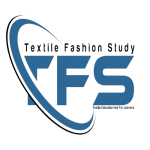Table of Contents
Woven Fabric Structure
Woven fabric structure is the main consideration in woven fabric production. Before fabric production, it needs to determine the type of fabric structure by which fabric will be produced. There are various types of woven fabric structures available. Sometimes, the buyer gives the specification of the fabric consumption by writing, or sometimes they send a fabric sample to produce a buyer sample. In this regard, it is required to analyze the buyer’s sample to determine the right structure of the fabric. After determining the structure, it is essential to set up loom parameters for bulk production.

Features Of Woven Fabric Structure
Woven fabric is determined by considering the following points:
- Firstly, woven fabric is produced by interlacing two sets of yarns, the warp and the weft, which are at the right angle to each other in the plane of the fabric.
- Secondly, the warp is oriented in the direction of the length of the fabric and the weft in that of its width.
- Thirdly, individual warp and weft yarns are called ends and picks, respectively.
- After that, the interlacing of the ends and picks with each other produces a coherent structure.
- Lastly, the repeating pattern of interlacing is called the weave.
Types of Fabric Weave Structure
Woven fabrics are divided into two principle categories based on woven structure. They are:
- Simple Structure
- Compound Structure
Features of Simple Fabric Structure
- The ends and picks are interlaced with one another at the right angle.
- In the fabric, the threads of each group are respectively parallel to each other.
- Only one series of ends and one series of picks are used in the construction.
- All the constituent threads are equally responsible for both the aspect of utility or performance in a fabric and the aspects of aesthetic apparel.
Features of Compound Fabric Structure:
- More than one series of ends and picks are used in the structure.
- Some of the threads may be responsible for the body of the fabric. Such as ground yarns, whilst some may be employed entirely for ornamental purposes such as Figuring or Face yarns.
- In this structure, some threads may be not found in the parallel formation one to another in either plane and indeed there are many pile surface construction in which some threads may project out at right angles to the general plane of the fabric, i.e. Pile or Towel.
In sum, woven fabric structure is difficult from knitted fabric structure. Here, the manufactures should be careful about the structure and loom setting to produce desired woven fabric.






1 comment
ahmed
first of all i,d like to myself . i am Ahmed
i am admaire you .it is very essenceail for textile learner.